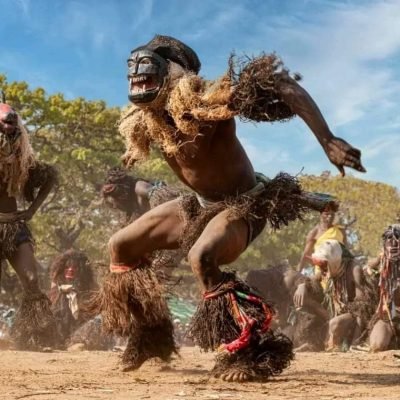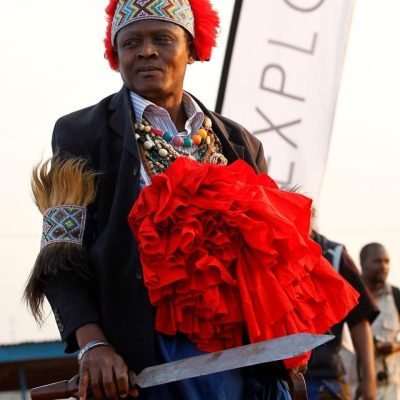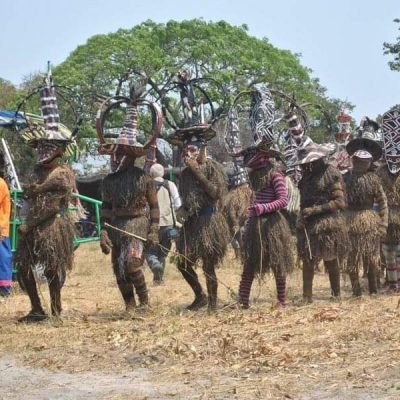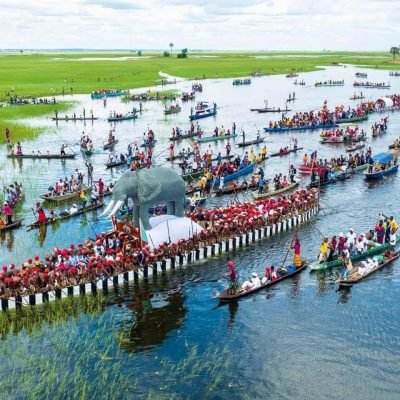Nc’wala Ceremony
" first fruits "
- Ruled by: Mpezeni
- Tribe: Ngoni

- Purpose: Thanksgiving for the first harvest of the season
- From: February
- Location(s): Mtenguleni
- District(s): Chipata
- Province: Eastern Province
Share:
General Information
The Nc’wala (also spelled Ncwala) ceremony is a significant traditional festival celebrated by the Ngoni people of Eastern Province in Zambia, particularly in the Chipata District.
The Nc’wala primarily serves as a thanksgiving ceremony for the first harvest of the season. It’s a time to express gratitude for a bountiful harvest and pray for continued blessings in the coming year.
The Nc’wala ceremony is a vital part of Ngoni cultural identity. It strengthens their sense of community, history, and connection to the land. It has become a popular tourist attraction, allowing visitors to witness a unique cultural celebration.
History
The Ngoni people have roots in the Zulu culture of South Africa due to the fact that they migrated from the south and settled in eastern province and Malawi.
Interestingly, the Nc’wala was banned during the British colonial period due to its perceived warlike elements. It was only revived after Zambia gained independence.
Procession
Chief Mpezeni, plays a central role in the ceremony. He leads the festivities and acts as a bridge between the Ngoni people and their ancestors.
The day before the main ceremony, the Chief travels in a procession from his palace to Mtenguleni village, the traditional site for the Nc’wala. This journey is often accompanied by singing and celebratory activities.
A mulomo(tasting) ceremony is a solemn ceremony where the Chief symbolically tastes the first fruits of the harvest. This act is seen as a form of communion with the ancestors, seeking their continued blessings.
The Nc’wala features vibrant dance performances by Ngoni warriors, often clad in animal skins and wielding spears and knobkerries. These dances showcase the Ngoni people’s cultural heritage and warrior spirit.
Women also participate in the ceremony with their own distinct dances, adding another layer to the cultural display.
Dress
The dress code at the Nc’wala ceremony in Zambia for the Ngoni people can be divided into two main categories: traditional attire and respectful modern wear.
Ngoni men traditionally wear animal skins, particularly leopard skins (a symbol of royalty for the Ngoni) or other hides like those of antelope or zebras. They might also wear headbands made of feathers or beads.
Ngoni women traditionally wear brightly colored cloth wraps or skirts with intricate beadwork and decorations. They may also wear headwraps or scarves and adorn themselves with jewelry.
Musical Instruments
Drums are central to Ngoni music, particularly larger barrel drums that provide the rhythmic foundation for the music. Smaller drums might be used for accents and fills.
Rituals and Practices
Historically, the Nc’wala involved the ritual slaughter of a black bull (Mnikelo). The Chief would drink some of the bull’s blood, symbolizing strength and the connection between the people, their ancestors, and the land. The practice of animal sacrifice might be observed or symbolic in some present-day celebrations.
No donation to this project yet.
| M | T | W | T | F | S | S |
|---|---|---|---|---|---|---|
| 1 | 2 | |||||
| 3 | 4 | 5 | 6 | 7 | 8 | 9 |
| 10 | 11 | 12 | 13 | 14 | 15 | 16 |
| 17 | 18 | 19 | 20 | 21 | 22 | 23 |
| 24 | 25 | 26 | 27 | 28 | ||







